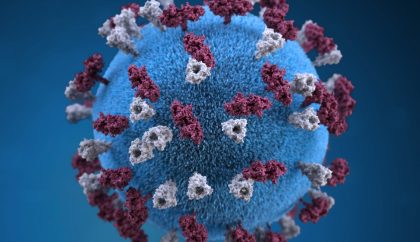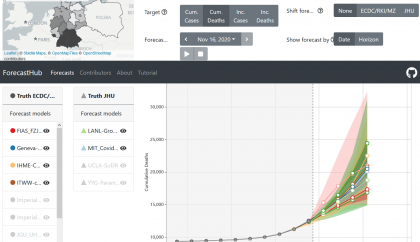
The good, the bad, and the spaghetti code: Software put to the test
Computer scientists at HITS and KIT Karlsruhe have developed “SoftWipe”, a largely automated open source tool and benchmark to assess the …

Traps and code: assessing insect biodiversity in Southern Crete
HITS group leader Alexandros Stamatakis (Computational Molecular Evolution) is one of the coordinators in a citizen science project to asses insect …

Putting computing power together against SARS-CoV-2
European scientists identified potent inhibitors of the SARS-CoV-2 main protease, a promising target for antiviral compounds.

Corona variants: Tackle the bioinformatics bottleneck!
In the light of fast-spreading coronavirus variants, genomic surveillance has become of great importance to fight the pandemic. In a …

How can we rely on AI?
Statisticians from HITS, KIT, and Heidelberg University introduce the new “CORP” approach to better determine the reliability of forecasting methods. CORP …

104 minutes of science
In an online conversation, Casey Dunn, Professor of Ecology and Evolutionary Biology at Yale University, and HITS group leader Alexis Stamatakis …

MGMS Lecture: Rebecca Wade
Rebecca Wade, leader of the Molecular Modeling (MCM) group, is the lecturer for the 2020 Molecular Graphics and Modelling Society (MGMS) Lecture …

DFG funds HITS research on SARS CoV-2 spike glycoprotein
The SARS-CoV2 virus is notorious for its characteristic spike protein that helps the virus to invade cells. Rebecca Wade and the …

Mapping the uncertainty: COVID-19 forecasts
Researchers from the Heidelberg Institute for Theoretical Studies (HITS) and the Karlsruhe Institute of Technology (KIT) have developed a web platform …

Again: “Highly Cited Researcher“ at HITS
For five years running, computer scientist Alexandros Stamatakis from the Heidelberg Institute for Theoretical Studies (HITS) has been named one of …